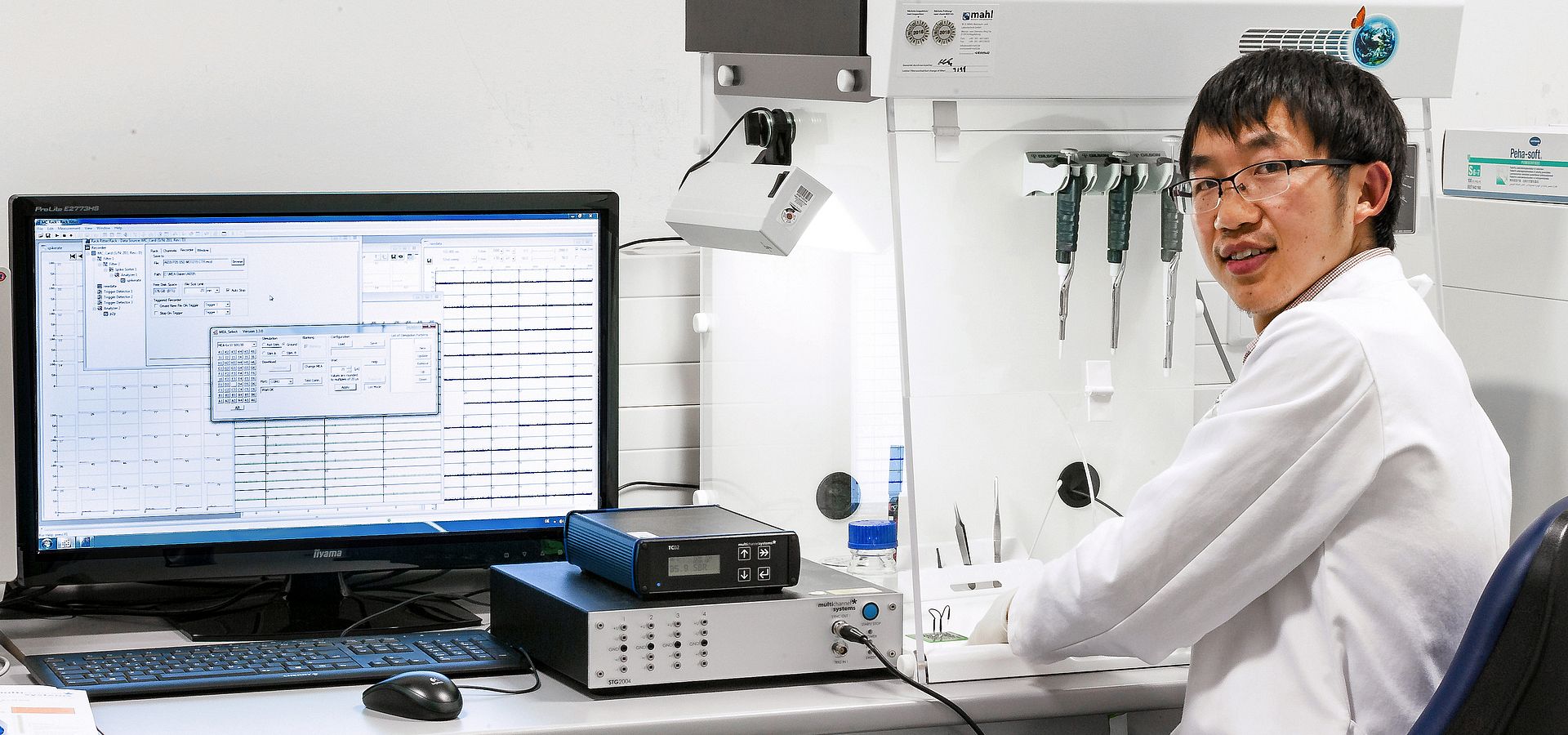Prerequisites for admission
- A first degree in a relevant field (completed or about to be completed).
- Proof of English Language Proficiency (non-native speakers).
Because of the interdisciplinary nature of modern neuroscience, our students have diverse backgrounds in physical and/or biological sciences. Accordingly, a B.Sc. degree in a relevant field (physics, biology, medicine, mathematics, experimental psychology, and others) from an internationally recognized university is required for admission. Students with other degrees and with a sufficient number of courses in biology, physics, inorganic and organic chemistry, and calculus may be considered on an individual basis.
In addition to a strong academic background, we expect future students to document (by past qualifications, activities, or achievements described in the “Statement of Purpose” and “Curriculum vitae”)
- Particular affinity to neuroscientific research.
- Particular intellectual abilities.
- Other important personal characteristics (relevant to a research career).
Selection is based on a combination of academic strength and these three criteria. In our experience, this approach increases the chances that an admitted candidate will succeed in the programme. In the past, 95% of all admitted students have graduated successfully (2008 to 2016).
Relevant academic background
Neuroscience is a very broad field and few newcomers have a uniformly strong background in all relevant fields. In our experience, biochemistry, mathematics, and programming sometimes present a challenge. If you need more preparation in either of these areas, we recommend the following online-resources:
Biochemistry:
chemistry-first” version, chapters 15 – 17, depending on your background, you may wish to begin with earlier chapters
Mathematics:
Programming in Matlab:
de.mathworks.com/help/matlab/getting-started-with-matlab.html (Getting started with Matlab)
www.mathworks.com/support/learn-with-matlab-tutorials.html (Learn with Matlab tutorials)
www.eng.ed.ac.uk/teaching/courses/matlab/ (An interactive introduction to Matlab)
General neuroscience background:
Bear, Connors, Paradiso: Neuroscience: Exploring the Brain, 3rd edition, 2006
Criteria for admission
The admissions committee evaluates applications in two rounds.
Firstly, the admissions committee assesses the strength of academic background (as evident from degree and course transcripts) and three additional criteria (as evident from “Statement of purpose” and “Curriculum vitae”):
Particular affinity to neuroscientific research (documented by past qualifications, activities, or achievements).
Particular intellectual abilities (documented by past qualifications, activities, or achievements).
Other important personal characteristics (relevant to a research career).
Secondly, if the admissions committee gained a favorable impression of the academic background and qualifications of a candidate, an interview is scheduled (in person or by phone/skype).
The purpose of the interview is to confirm that you understand the nature of the programme (i.e., what it does and does not offer), that you are specifically interested in an integrative neuroscience programme (i.e., rather than a more focused programme), and to identify any areas in which you may want to get further academic preparation (i.e., how to best use the remaining time before admission).

